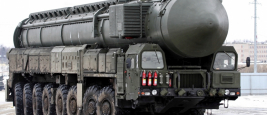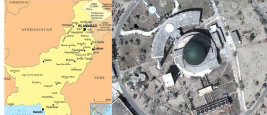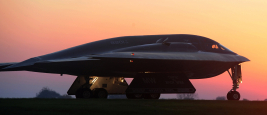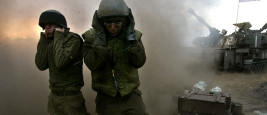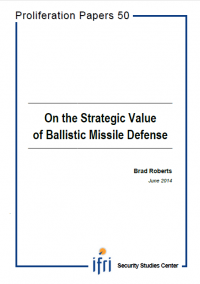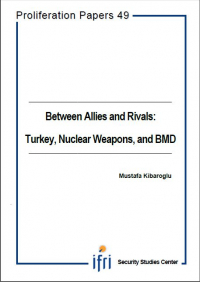Russia has recently accused the United States and NATO Allies of violating the Treaty on the Non-Proliferation of Nuclear Weapons (NPT) by arguing that NATO's nuclear sharing arrangements are not permitted under the Treaty.

Publications
With over 150 publications issued each year
under an open access policy in French, English, German and Russian,
Ifri enriches the international debate with a constant concern for
objectivity, intellectual rigor, transversality, openness, and support to public and private decision-making.
This paper seeks to analyze the future Middle Eastern military balance of power, in a time horizon of five to ten years.
After the world entered the nuclear age, civilian and military organizations have witnessed the slow emergence of nuclear cultures, defined as the set of values and knowledge, shared among the national security community, about the relative importance of nuclear weapons in the country’s...
This paper traces the evolution of Russian views on the art of coercion, and on the role of nuclear weapons in it, from the post-Cold War “regional nuclear deterrence” thinking to the current “Gerasimov Doctrine”.
For decades, the Asian security environment has been characterized by multiple strategic rivalries with cascading effects.
About a decade ago, the U.S. started to examine options to develop and acquire Conventional Prompt Global Strike capabilities. This move fits in an effort to conventionalize deterrence, an effort initiated decades before and undertaken for profound and diverse motives. Although it has been...
The use of chemical weapons (CW) in Syria and the decision to award the 2013 Nobel Peace Prize to the Organization for the Prohibition of Chemical Weapons (OPCW) reminded the international community that these weapons continue to represent a serious threat. The number of incidents of chemical...
The strategic value of missile defense remains in considerable debate in Europe but less so in the United States.
This paper discusses Turkey’s attitudes vis-à-vis nuclear weapons and Ballistic Missile Defense in the light of recent developments in the Iranian nuclear program and NATO’s evolving concept of extended deterrence.
Since Poland first expressed its willingness to host a critical part of the US Ballistic Missile Defense architecture, in 2002, the program has undergone several setbacks. Today, while Poland is still expected to host key elements of the US BMD capabilities, contributing to NATO’s territorial...






